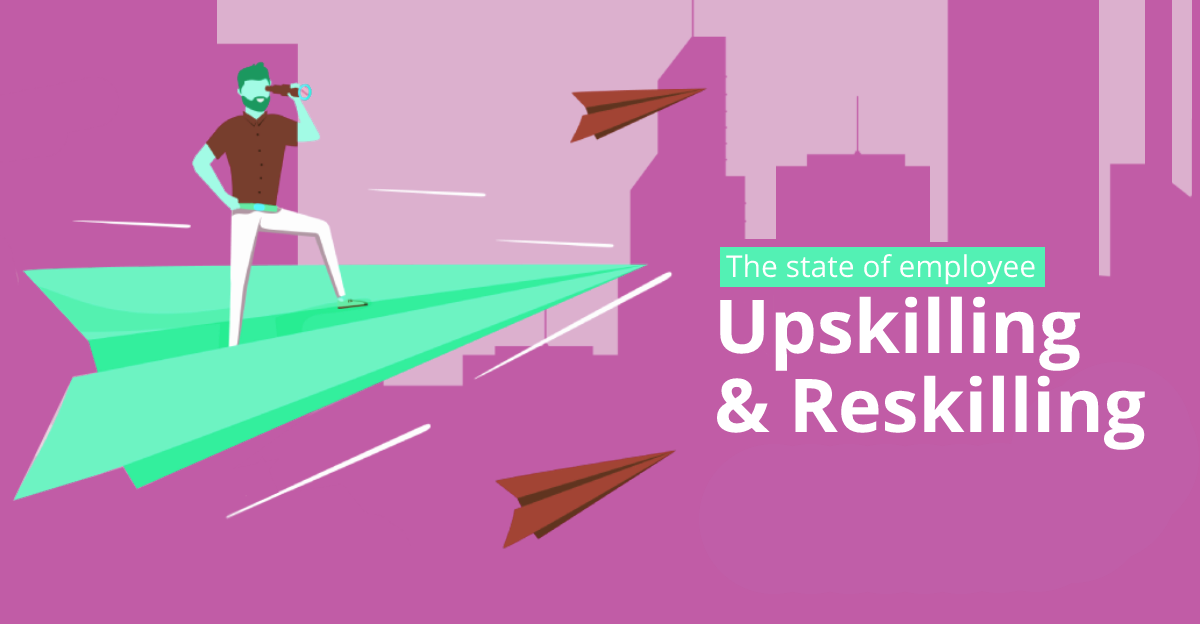What exactly is upskilling, and what makes it crucial?

What exactly is upskilling , and what makes it crucial? Whether you’re an employee looking to future-proof your career, or an employer who wants to strengthen your workforce, here’s everything you need to know about upskilling.
We frequently invest time in acquiring the abilities necessary to succeed when getting ready for a new job. However, after you begin that responsibility at work ,What exactly is upskilling, and what makes it crucial? Well, the secret to success going forward is to never stop learning.
You have a great opportunity to pick up new abilities in addition to your current job via upskilling. Upskilling can enhance professional development and lead to greater career chances in addition to increasing job satisfaction.
What precisely is upskilling, therefore, and how can you benefit from it? This step-by-step tutorial will walk you through a variety of ways you can successfully upskill, from the perspectives of both employers and employees. These methods range from online short courses to micro credentials and degrees.
What exactly is upskilling?
You might be wondering What exactly is upskilling actually means if you’re unfamiliar with this phrase from the workplace. In a nutshell, upskilling is the process of expanding your potential and filling in any skill gaps by learning new abilities and knowledge relevant to your position. This can be accomplished independently using outside resources like online short courses, or it can be done through training sessions conducted inside your company.
Upskilling is concentrated on improving performance in your present work, as opposed to reskilling, which involves developing skills for a career transition. By effectively upskilling, you can advance your career, perform better, and successfully adjust to changes in your work.
The competencies you acquire may be industry-specific or more broadly applicable to your position, like general or communication abilities.
Reskilling vs. upskilling what’s the difference?
Upskilling and reskilling both entail acquiring new skills, yet they differ greatly from one another. Think about whether you want to advance in your current career or pursue a different one entirely when determining whether to reskill or upskill.

As we’ve covered, upskilling facilitates professional advancement in your existing position by opening doors for you within your company.
Reskilling, on the other hand, entails learning a whole new set of abilities for a whole different line of work. Since you might not have any prior talents to draw from and because you might need to pursue formal schooling to obtain a qualification, reskilling might be more complicated than upskilling.
Why is upskilling important for employees?
In the current digital era, workplaces are changing more quickly than in the past. Upskilling is becoming more crucial in understanding how your role could alter or be better as a result of this transformation. This is especially important for every new technology you operate with, as industries are always implementing new digital techniques.

You might be more productive, efficient, and motivated at work if you have a better grasp of your function. Additionally, developing your skills might make you a valuable asset to your business, which could result in a raise in salary or other chances.
Upskilling is, to put it briefly, an investment in your career. It provides observable advantages since you acquire abilities that you can use immediately in your position, enabling you to advance.
Read More:Indonesian Upskilling Platform Cakap Raises Fresh Funding; Bring Its Valuation Over $100M
Why is upskilling important for employers?
By filling new roles and closing the skills gap inside the organization, upskilling can help organizations bolster their current workforce. This can help you stay competitive in your field, particularly if part of your upskilling entails utilizing new technology to streamline workflows and stay up to date with rapidly evolving industry trends.
By keeping your most seasoned workers, it can help cut expenses. As a result, you’ll save money on hiring, onboarding, and training expenses as well as staff attrition.
It goes without saying that staff members are excited about chances for professional growth. When evaluating a possible new job, 65% of employees see employer-provided upskilling chances as “very important,” according to Gallup-Amazon study.
With an upskilling strategy in place, businesses can encourage a mindset of constant learning to support career advancement and increase
How to upskill yourself
You’re likely to discover a suitable alternative among the numerous methods available for upskilling.
It’s crucial to take the lead in your upskilling journey even though your company might already have training possibilities available to you this is your career, after all!

Determine your career’s skill gaps as well as the path you wish to take for your professional development to begin. In order to determine which abilities will give you a competitive advantage, you can also investigate the talent shortages in your sector and inside your own organization.
You might even ask coworkers or bosses what abilities they believe would help you advance in your current role to get assistance with your research. Equipped with your selected proficiencies, jot down the reasons that
How to upskill your employees
An effective upskilling plan should benefit the entire business, not just your staff. Investigate any incentives you might want to offer first. These could be monetary or benefit-based, such as letting staff members take time throughout the workday to advance their skills.
Your plan should ideally pinpoint any talent and skill gaps in your company and sector. With this knowledge, you can better upskill your staff and meet workplace needs in a way that benefits the company, the industry you operate in, and the individuals themselves.
Examining the sector as a whole, take note of the trends that will help your organization achieve its long-term objectives. Finding any trends that will enable you to take advantage of technology and keep a competitive edge is also a good idea.
Employees have the fantastic opportunity to learn from more seasoned colleagues while gaining on-the-job experience through shadowing. Employees who are providing the training would also gain from it since it will give them leadership experience.
After putting a solid upskilling plan in place, you must determine each employee’s unique needs. This covers their role and skill set now, their aspirations for upskilling, and how upskilling will enable them to perform better in their current role and contribute to the business’s overall success.
Upskill with FutureLearn
Upskilling benefits both employers and employees by enabling you to accomplish your career objectives and build your self-confidence.
At FutureLearn, we think that learning can change people. We provide a range of upskilling options, including online short courses that allow you to learn at your own speed, microcredentials that may be used to earn university credits and a professional certificate, and online degrees that provide more structured instruction in an online environment.
Are you prepared to advance to the next phase of your career growth? Take action now and upskill.











